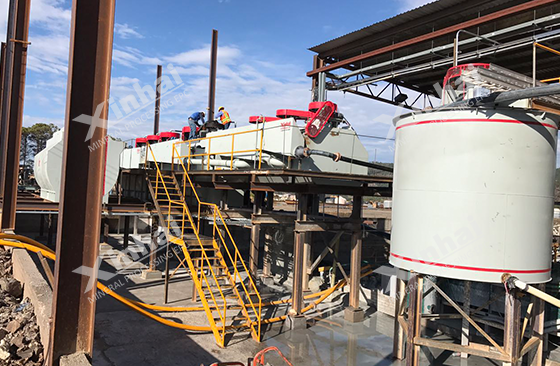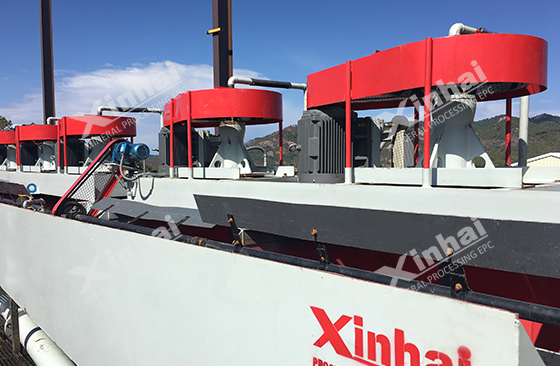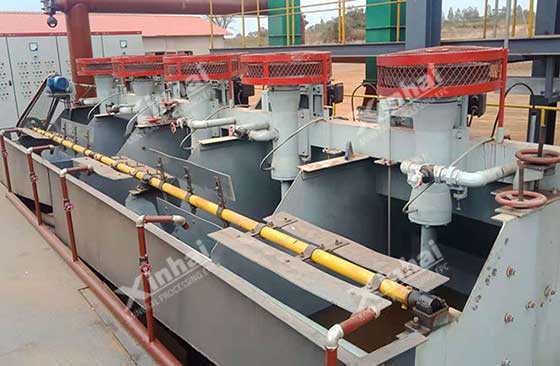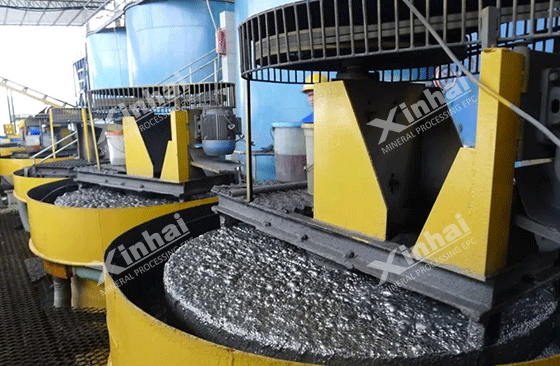
Nowadays, the world economy is developing rapidly, and the demand for copper mineral resources in various industries is increasing. However, the global resources of easy-to-select ore are decreasing year by year, and the amount of difficult-to-select copper ore is increasing, showing the characteristics of being poor, fine and mixed. Most copper ores coexist with various metals, among which sphalerite often coexists with copper sulfide ores to form copper-zinc sulfide ores. Generally, mineral processing plants will choose flotation process to treat such ores, but with the increasing awareness of environmental protection and energy conservation and emission reduction, the requirements for flotation technology are getting higher and higher. Choosing a reasonable, efficient and environmentally friendly environmental protection process is the future development direction of flotation technology. The flotation separation of copper-zinc sulfide ores has always been a difficult problem in mineral processing. The following article will introduce you to the current status of flotation process of copper-zinc sulfide ores and the reasons for the difficulty of flotation.

According to the different properties of the ore, the flotation process of copper-zinc sulfide ore can be divided into four types: priority flotation, mixed flotation, partial mixed flotation, and equal flotation. The key to the flotation of copper-zinc sulfide ore is copper-zinc separation, which is mainly treated by copper suppression and zinc flotation and zinc suppression and copper flotation. In actual production, since the floatability of chalcopyrite in the ore is better than that of sphalerite, and the zinc grade is generally higher than that of copper, the copper-zinc separation method of zinc suppression and copper flotation is widely used in ore dressing plants, following the principle of "floating less and suppressing more".
Most copper-zinc resources exist in the form of their sulfides. Due to mineralization, copper and zinc sulfide minerals often coexist to form copper-zinc sulfide deposits. Flotation process of copper-zinc sulfide ores is a difficult problem in the mining industry, especially the separation of copper and zinc. The differences in the properties of copper-zinc sulfide ores lead to different reasons for the difficulty in separating copper and zinc. Generally speaking, there may be the following reasons:

1. When the copper-zinc-sulfur ore is of high-temperature hydrothermal type, the copper minerals are in a fine-grained impregnation state and closely coexist with sphalerite. Therefore, it is difficult to separate the two mineral monomers. Even if the monomer dissociation is achieved under fine grinding, the floating speed will be reduced because the mineral particles are too fine. At the same time, as the specific surface area of the mineral particles increases, the solubility of the copper mineral particles will increase, and the dissolved copper ions will activate sphalerite. In this case, the difference in the floatability of the sulfides of copper and zinc ores will become smaller, making it difficult to separate the two minerals. Due to the fine particles, the increase in the specific surface area of the mineral will also increase the surface activity of the mineral particles, thereby increasing the loss of the reagent and reducing the selectivity of the reagent.
2. Sphalerite will be activated by metal ions such as copper, lead, and mercury, thereby improving its floatability. Secondary copper minerals will produce copper ions during the grinding and flotation process, which will activate sphalerite. The floatability of sphalerite will be similar to that of copper ore, thus increasing the difficulty of separating copper and zinc ore.

4.The various minerals in copper-zinc-sulfur ore have different floatability. Different types of copper minerals in copper-zinc-sulfur ore will have different floatability. Even if it is a copper mineral, the floatability difference will increase due to the influence of external factors (such as surface oxidation, pollution and impurities). This situation also occurs in zinc minerals. This interlaced floatability will increase the difficulty of separating copper and zinc.
5. Since copper, zinc and sulfide ores are closely intergrown and have fine embedded particle sizes, the production adopts the flotation process of copper-zinc mixed flotation concentrate followed by regrinding and separation. However, the presence of a large amount of residual reagents in the copper-zinc mixed concentrate and the reagent film formed on the mineral surface will have a huge impact on the separation of copper and zinc. Even if the reagents are removed before the separation of the copper-zinc concentrate, the separation effect will be unsatisfactory due to incomplete removal of the reagents.

To sum up, the flotation process of copper-zinc sulfide ore faces many challenges, but driven by scientific research and technological innovation, we have reason to believe that breakthrough progress will be made in the future. With the improvement of environmental awareness and the stricter requirements for energy conservation and emission reduction, the development of efficient and environmentally friendly flotation processes has become an inevitable trend. By continuously optimizing the flotation process flow and improving the chemical system, and rationally coping with the complexity and variability of ore properties, the flotation separation efficiency of copper-zinc sulfide ores will be significantly improved, thereby better meeting the needs of social and economic development.
To find out more about our products and solutions, please fill out the form below and one of our experts will get back to you shortly.